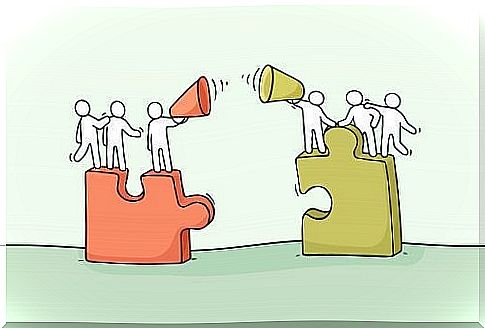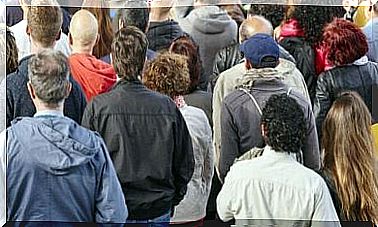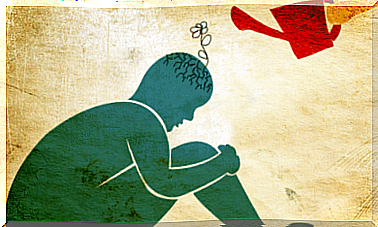Prejudices In Own Groups: What Is It About?

Social psychology says that people create categories and divide people into these categories. In other words , we create groups based on nationality, ethnicity, religion, gender and preference among others. This implies that some people will be with people from their group and others will not. This leads to prejudice in one’s own groups.
Prejudices in one’s own group, also called favoritism of one’s own group, can be defined as the tendency of people to favor, benefit or value the members of their own group more than people outside their group. In other words, they favor people in their group rather than people who do not belong to the group.
Prejudices in own groups and conflict
Prejudices in own groups are considered a product of the conflict between groups. This is due to the different interests between the groups or that they have incompatible goals. Two groups can have the same goals, but when one reaches the goal, it means that the other can not.

Football is the perfect example. Football fans identify with their team, so they create a category that includes fans of their team, but they exclude fans from other teams. On the other hand, the goal in a football league is to win the championship. But only one team can win.
Therefore, if your favorite team is FCK, you will have a conflict with fans from other teams, especially if they pose a threat because you think they may have more chances than FCK to win the Super League.
The conflict can be more or less intense. This depends on your involvement in your group as well as other factors. In relation to prejudices in our own groups, our attitudes, perceptions, preferences and even behaviors will change.
For example, we see people from other teams as less friendly. This leads to us treating them badly while treating fans of our team better.
Progress in the study of prejudices in own groups
Subsequent research has shown that conflicting interests or conflicts are not necessary for prejudice to manifest itself in its own groups.
Although members of other groups are not always treated badly, prejudice always appears in the group. We will always favor our own group.
These studies have also managed to explain the cause of prejudice in own groups. Based on the fact that people feel motivated to have and maintain a positive concept and image of themselves, we have found that people are partially defined by the groups to which they belong.
If a person wants to have a good self-image, they should also make sure that their group image is positive. As a result, people are motivated to evaluate the groups to which they belong positively.

How do you arrive at a positive evaluation of the group itself?
We assess our groups by comparison. We are not saying that our group is good, but that it is better than another or the best group of all. When we compare our group with others, we get a positive rating and our self-confidence increases.
We conclude that our group is different and better than others. Researchers call this a positive own group characteristic.
On the other hand , four conditions must be met to create we-group prejudices and change our perceptions, evaluations, and behaviors as a result of a quest to achieve positive self-group characteristics:
- People need to identify with their group and use that identity to define the image they have of themselves.
- They need to compare their group with others based on a trait that is considered important.
- The group they are comparing their group with should be perceived as important.
- The real positions of the compared groups must be subject to some ambiguity.
In short, belonging to a group has consequences that we do not always recognize. Favoring those we consider members of our group more than members of other groups is one of them. Therefore, knowledge of the effects of group identification is the first step towards managing its influence over us.









